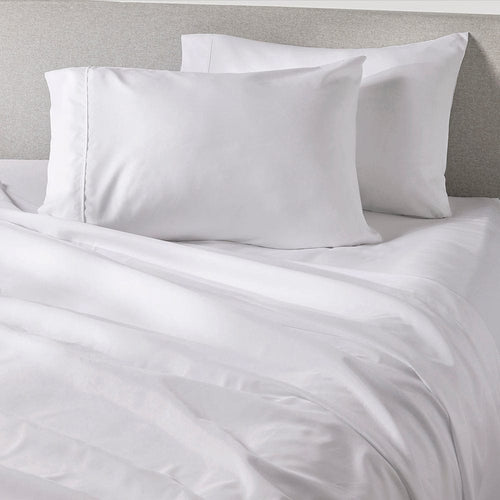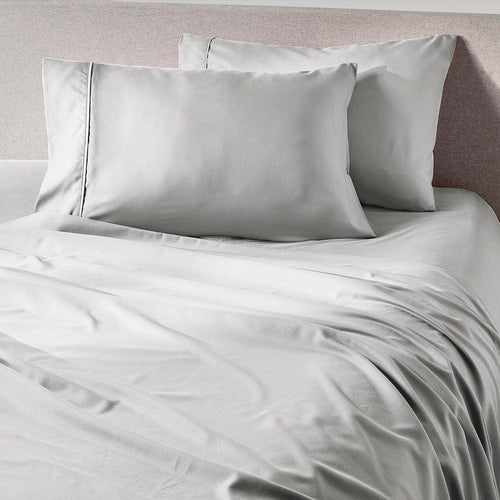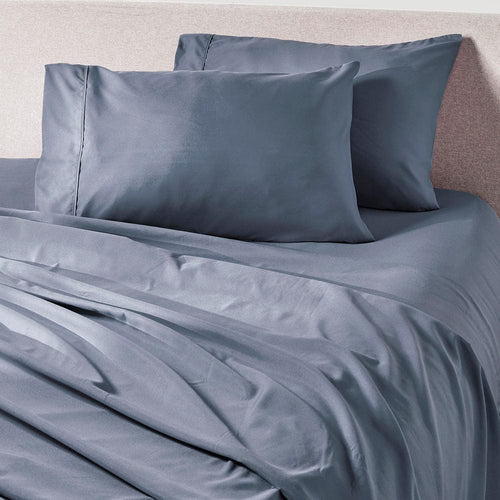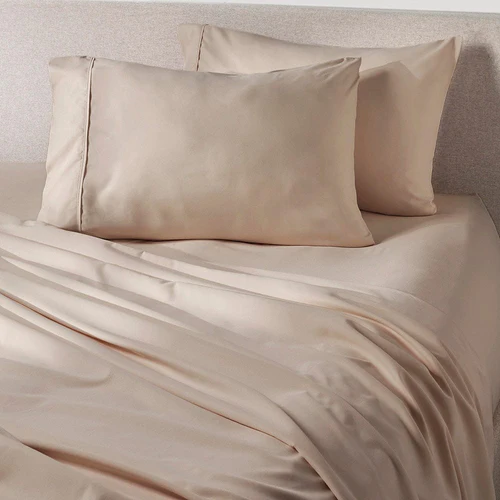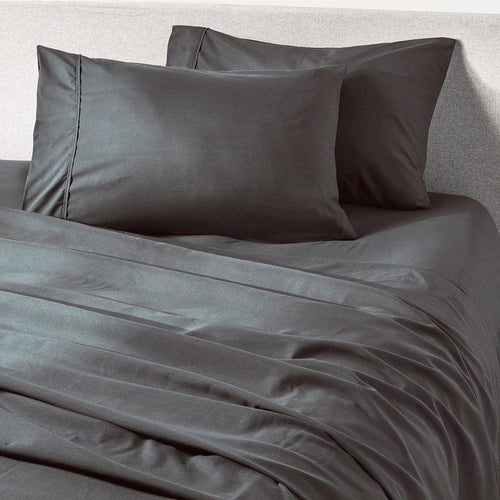
How to Get Better Sleep at Night
Adults in the United States are not getting enough sleep. According to the American Sleep Association, 50 to 70 million Americans have a sleep disorder. What’s more, in adults 20 to 39 years old, 37% reported inadequate sleep, and in those 40 to 59 years old, that number rose to 40%.
Sleep deprivation can have serious consequences:
- Each year, there are 40,000 nonfatal injuries and 1,550 fatalities as a result of drowsy driving.
- In the U.S. alone, there are 100,000 deaths in hospitals caused by medical errors annually. Sleep deprivation has been cited as a significant cause.
Sleep is important and something you can’t afford to ignore. Here’s how to get your best sleep ever.
TURN YOUR BEDROOM INTO A SLEEP HAVEN.
Your bedroom should be a place of rest, so when you walk in, your mind and body immediately associate that space with sleep. That means you should avoid eating in bed, working, doing homework, or other non-sleep related activities. Lower the lights, make it quiet (or use a fan for some white noise), and prepare your space for slumber.
MAKE YOUR BED.
One study shows that making your bed could make you sleep better. Having sheets that are changed once a week and clean also help considerably. In this study, participants reported more comfortable sleep when their sheets had a clean, fresh scent. Comfort is absolutely vital when it comes to getting good-quality sleep, so do all you can to ensure your bed and bedroom are sleep ready.
SHUT OFF ALL ELECTRONIC DEVICES.
If you’re like most people, your phone is the last thing you look at before turning out the lights. That’s not good for your sleep, though. Backlit screens for your smartphone, tablet, computer, and even television emit blue light, which tricks your brain into thinking it’s daytime. That means your brain does not release melatonin, and you don’t power down naturally to fall asleep. To prevent this, avoid all electronic devices about 45 minutes to an hour before bedtime.
AVOID CAFFEINE AFTER 2 P.M.
Caffeine is a known sleep stealer, so if you’re having a cup or two in the afternoon and tossing and turning all night, it isn’t hard to identify the culprit. If you need a boost in the afternoon, try reaching for a handful of blueberries or strawberries, grabbing a banana, or having a glass of organic, natural, sugar-free apple juice. You may also want to try ginseng to see how it affects you. It could be a welcome addition to your afternoon routine.
DON’T EAT A HEAVY EVENING MEAL.
Heavy meals can cause heartburn and acid reflux, not to mention they can feel like a brick in your gut. Eat early so your food has time to digest for at least a couple of hours. You should also drink plenty of water to aid in the digestion process. If you find you are prone to indigestion and other related symptoms, a digestive enzyme could help. If you have to eat late and can’t avoid a heavy meal, you may sleep better by elevating your head a little with an extra pillow.
TAKE A WARM BATH OR SHOWER.
A warm bath or shower can help relax and soothe sore, tired muscles so you can sleep better. Enhance your experience by using lavender soap, candles, and soft music to relax and prepare for bed. A little aromatherapy can work wonders as well! Just put a few drops of lavender essential oil in a diffuser, and allow the calming scent to permeate the entire room. Avoid electronic devices or any stimulating reading while in the tub—think calm and relaxed.
HAVE A CUP OF CAFFEINE-FREE TEA.
There are plenty of herbal teas on the market that promote sleep. To find the best, look for those containing chamomile. However, if you have sleep issues like insomnia, you may want something a little stronger. Passionflower is very good for helping you fall asleep, and it will calm any anxiety. Valerian root is also good for anxiety and racing thoughts. Teas that have these ingredients will help you rest better. Applying magnesium cream to your neck, behind your ears, temples, and insides of your wrists can also help with sleep. Many people don’t realize that a deficiency in magnesium can lead to insomnia and sleep troubles.
DO A LITTLE YOGA.
Yoga is a great way to unwind and shed the stress of the day. Set the mood by lowering the lights, putting on some soft, gentle music, and doing simple stretches and poses. Yoga is better than many other forms of exercise when it comes to preparing for sleep because it is gentle, slow and very low impact. Other types of exercise, especially cardio, could wind you up so much that it would take several hours for you to relax enough to fall asleep. Save more rigorous exercise for early in the day!
INVEST IN HIGH-QUALITY SHEETS.
If you are prone to night sweats or just tend to get warm at night, consider investing in a set of sheets that keep you cooler and drier throughout the night. The athletic-grade fabric that makes up PeachSkinSheets wicks moisture away from the skin instead of absorbing it the way cotton does. It’s hard to sleep when you’re hot and even harder when you are woken up by damp clothes and sheets. Sheets that wick away moisture can help keep you dryer, which means you can sleep more peacefully and get better rest.
PeachSkinSheets are the best sheets for hot sleepers. The 1500 thread count softness feels great against your skin while it wicks moisture away, so you feel cooler and comfortable all night long. To explore the colors and styles of our sheets and experience the maximum comfort they provide, visit PeachSkinSheets.com today!

